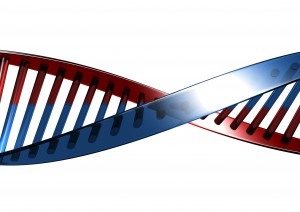 The links between breast cancer and genetics are well established. However, it is not know exactly what makes some women more likely than others to lose their fertility after cancer treatment. We recently wrote a blog post on the correlation between amenorrhea, the absence of a menstrual period, and cancer survival. A new study titled Association of Cyclophosphamide Drug-Metabolizing Enzyme Polymorphisms and Chemotherapy-Related Ovarian Failure in Breast Cancer Survivors from the University of Pennsylvania recently found that menopause after chemotherapy is linked to certain genes, and therefore may be inherited.
The links between breast cancer and genetics are well established. However, it is not know exactly what makes some women more likely than others to lose their fertility after cancer treatment. We recently wrote a blog post on the correlation between amenorrhea, the absence of a menstrual period, and cancer survival. A new study titled Association of Cyclophosphamide Drug-Metabolizing Enzyme Polymorphisms and Chemotherapy-Related Ovarian Failure in Breast Cancer Survivors from the University of Pennsylvania recently found that menopause after chemotherapy is linked to certain genes, and therefore may be inherited.
In the study, published in the July version of the journal Fertility and Sterility, scientists used a method called a “candidate gene approach” to determine the relationship between a year of amenorrhea, which is the clinical definition of menopause, and genetics. They examined a group of genes, called CYP, which may be involved in the metabolism of a chemotherapy reagent used in most breast cancers. The scientists looked at sites of common variations, called single-nucleotide polymorphisms, or SNPs, within the candidate genes, and recorded menstrual history after chemotherapy treatment. They found that women under the age of 45 at the time of chemotherapy were less likely to enter menopause if they had a specific variation of the CYP3A4 gene that may increase the breakdown of some chemotherapy drugs.
Irene Su, MD, the first author on the study hopes to use this information to predict the likelihood that a woman will enter premature menopause with cancer treatment. With her research,” The goal is to give you a more accurate idea of the risk factors for ovarian failure and in what timeframe,” states Su. Armed with this information, she hopes that doctors can better advise their patients about fertility options and “make better decisions prior to chemotherapy.”

